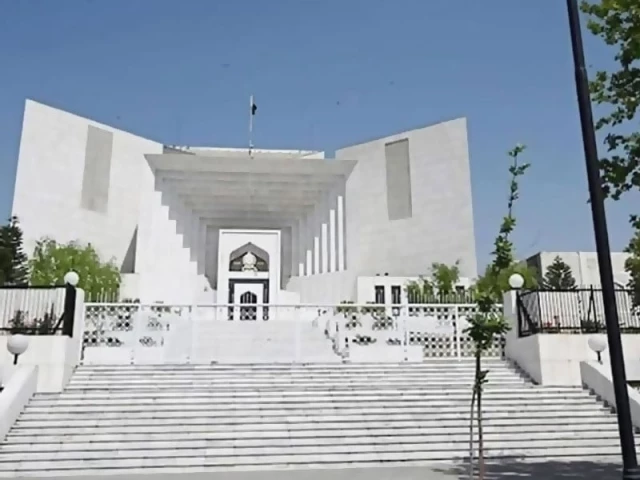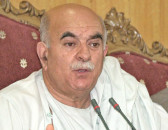SC grills ‘windfall profit’ logic in super tax case
Bench notes autonomous bodies like PIA, steel mills run at loss yet in super tax list

The Supreme Court on Monday questioned the government’s rationale behind the windfall profit tax, probing whether ordinary price hikes could be treated as extraordinary profits.
A five-member constitutional bench, headed by Justice Aminuddin Khan, heard arguments from petitioners’ counsel Ahmed Jamal Sukhera.
Justice Hassan Azhar Rizvi asked: “If petrol rises from Rs150 to Rs200, would that be windfall profit? If sugar goes from Rs160 to Rs170, would that still count?”
Sukhera argued that the tax unfairly targeted a few sectors. “If three or four people benefit while the majority incur losses, how can tax be imposed?” he said, noting contradictions in government policy and that the measure was driven solely by the “windfall profit policy.”
Justice Muhammad Ali Mazhar reminded him that constitutional safeguards have limits: “Article 10-A is about fair trial — what does that have to do with taxation?”
Sukhera insisted taxation should involve public participation, arguing that the tax violated Entry 47 of the Constitution, which governs Parliament’s taxation powers.
Read: SC hears super tax challenge, FBR defends Parliament’s power
Justice Mazhar responded that while some municipal taxes include such provisions, “income tax law has no clause about public hearing.”
During proceedings, Sukhera remarked, “Simplicity too can be a captivating charm,” prompting Justice Mazhar to quip, “Perhaps this is your kind of simplicity?” — drawing laughter.
Referencing his age, Sukhera said, “I am old now; my children are barristers and they are sitting here.”
Justice Jamal Khan Mandokhail asked his age, and upon hearing “57,” remarked, “You consider 57 old?” — prompting further laughter.
Sukhera concluded, “One day, none of us will be here, but this judicial decision will remain.”
The bench noted that autonomous government institutions, including PIA and steel mills, were running at a loss yet were included in the super tax list.
Read More: Super tax under scrutiny in Supreme Court
Justice Mandokhail observed that overseeing these institutions is the government’s responsibility, not Parliament’s. The hearing was adjourned until Tuesday.
Super Tax
The super tax is an additional levy on high-earning individuals, companies, and industries, largely aimed at big corporations. In the 2022–23 federal budget, the government imposed up to 10% super tax on major sectors, including cement, steel, sugar, oil and gas, fertiliser, banks, and textiles, citing the need to raise extra revenue for economic stabilisation.
Petitions challenging the levy have been filed before the top court by individuals and organisations. At the previous hearing, the bench was apprised by the FBR that no one had challenged the Lahore High Court’s (LHC) verdict, upholding the legality of the super tax imposed under Section 4C of the Income Tax Ordinance, 2001, while reducing its rate from 10% to 4% for 16 sectors, including banking, and offering partial relief to petitioners.
Earlier this year, the apex court questioned whether the Centre could distribute super tax revenue to provinces, noting that while the levy has been extended since 2016, no funds had been utilised for the stated purpose.
Also Read: Supreme Court CB questions distribution of super tax funds to provinces
At a recent hearing, the bench raised concerns over the impact of the super tax on ordinary citizens, Justice Mazhar observing that whether it was a cement bag or a liquefied natural gas shipment, “the entire burden comes down on the common man”.
“Business will flourish if we make things easier for people,” he added.
“Do not discourage taxpayers — when you do, people end up leaving the country,” Justice Mandokhail had cautioned, similarly.
Hamid had then clarified that only 15 sectors with incomes exceeding Rs300 million were liable for the super tax and that no company had claimed an inability to pay. The bench pressed the FBR to explain why distinctions among taxpayers were created, stressing that budget measures should not shift the burden back onto the public.






















COMMENTS
Comments are moderated and generally will be posted if they are on-topic and not abusive.
For more information, please see our Comments FAQ